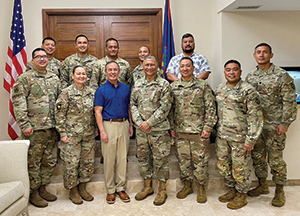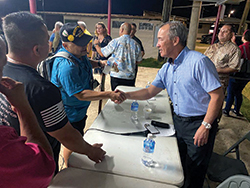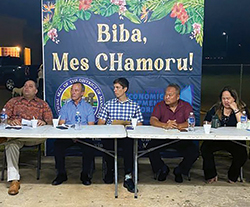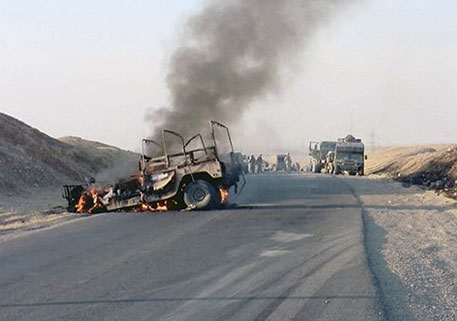
For many service members returning home to remote locations, reintegration into civilian life may make them feel like they are isolated and receive second-class care options. But for more than 83,000 veterans living in the U.S. territories of Puerto Rico, Guam, U.S. Virgin Islands, American Samoa and Northern Mariana Islands, it is a distinct reality.
High rates of military service exist in the U.S. territories, but veterans who reside in these areas are largely forgotten and often have to go to great lengths to obtain the benefits they earned.
“Disabled veterans have already sacrificed greatly in terms of their impairments and loss of earning capacity,” said DAV Washington Headquarters Executive Director Randy Reese. “Veterans who live in U.S. territories should not be burdened by an arduous travel reimbursement process for their medical appointments.
“DAV urges Congress to make the necessary improvements to this program on behalf of our nation’s veterans.”
In rural areas of the continental United States, many veterans face challenges with access to health care and services. Compared with urban areas, these communities have higher poverty rates; more older residents; poorer health; and fewer physicians, especially those who provide specialty care. Due to the geographic isolation of U.S. island territories, all such issues are exacerbated.

Most veterans from those territories only have access to a Department of Veterans Affairs Community-Based Outpatient Clinic (CBOC), which provides primary health care but lacks many specialty care options veterans need. Puerto Rico, the only island territory with a VA medical center, located in San Juan, continues to deal with chronic staffing shortages, with pay disparity playing a significant role in the ability to recruit and retain qualified staff.
Unfortunately, the VA Community Care program is also not a viable alternative in Puerto Rico.
“Community Care continues to be a struggle for our veterans trying to access that program,” said Alex Martinez, DAV national service office supervisor in San Juan. “Not enough providers have joined the program, and as a result, there is not enough capacity for what our veterans need here for their care.”
According to the Puerto Rico Department of Health, Puerto Rico has seen an exodus of medical professionals, losing nearly half of its physicians since 2010. Losses have derived from pay disparity, emigration, death, retirement or the aftermath of natural disasters. Although rebuilt, the CBOCs in Arecibo and Vieques received extensive damage due to Hurricane Maria in 2017 and remain at risk for future severe storms.
The U.S. Virgin Islands has CBOCs on two of its three main islands, St. Croix and St. Thomas. However, most Virgin Islands veterans still need to go to the San Juan VA Medical Center for specialty care or hospitalizations and must travel by air or boat. These visits can be extremely challenging for veterans with multiple disabling conditions or mobility limitations. The VA covers travel expenses and accommodations, but flights and boat rides to and from San Juan are limited.

Veterans who reside in the Northern Mariana Islands do not have access to any local VA facility. The closest location to them is Guam, which is at least a one-hour flight. As with most CBOCs, the VA facilities in Guam and American Samoa both lack specialty care and have similar issues of specialty provider availability under the Community Care program. These veterans’ nearest specialty care appointments are in Hawaii, which is a seven-hour flight away.
The VA Beneficiary Travel Office provides mileage reimbursement to certain veterans to cover the costs of traveling to and from their health care appointments. According to a recent report from the VA Office of Inspector General, the VA is not meeting its goals of streamlining this service and expediting reimbursement.
“Not all cases are qualified for reimbursement, and for those that are, the process is tedious and time-consuming, and many times unfair to the veteran and their family,” said Rep. James Moylan, an Army veteran and Guam’s current congressional delegate. “Veterans that reside in Guam and other U.S. territories deserve equitable access to care just like their peers who live on the mainland.”






